

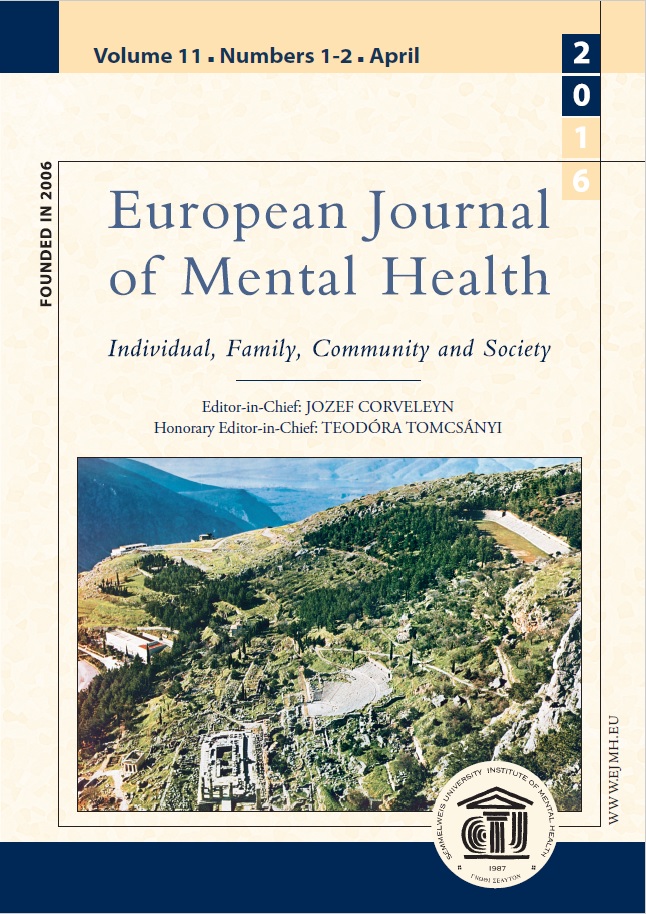
Keywords: body awareness;body image;body-mind;mindfulness;physical activity;well-being;yoga
Regular yoga practice was connected to higher levels of psychological well-being in cross-sectional and longitudinal studies. However, the psychological mechanisms of this connection are still unexplained. In the present cross-sectional questionnaire study, hypothesised mediating effects of body awareness, satisfaction with body image, and mindfulness were investigated. 203 healthy adults (183 females, mean age: 36.8 ± 10.03 years) practicing yoga at an advanced level were involved in the study. Participants completed online questionnaires assessing body awareness (BAQ), dissatisfaction with body image (BIQ), mindfulness (MAAS) and well-being (WHO-5). Body awareness, body image dissatisfaction and mindfulness showed significant correlations with the weekly frequency of yoga practice as well as with psychological well-being. Body awareness, body image and mindfulness mediated the connection between yoga practice and well-being. In the regression analysis, body image dissatisfaction and body awareness remained connected to well-being even after controlling for practice frequency, mindfulness, gender and age. According to these results, body awareness, body image satisfaction and mindfulness are mediators of the connection between yoga practice and well-being.
More...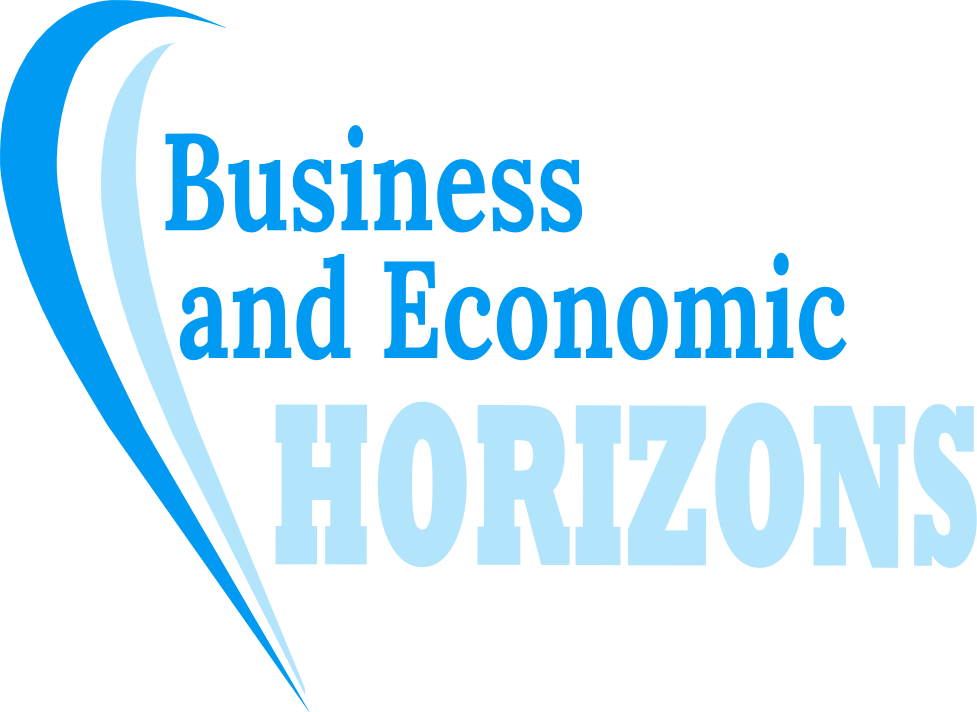
Keywords: Marketing; sales; emotional regulation; cognitive flexibility; mindfulness; response inhibition; Jordan; banking sector
This study empirically verifies the determinants of emotional regulation as observed among marketing staff in the Jordanian banking sector. In particular, it examines the relationship between participants’ cognitive flexibility capabilities, their levels of response inhibition and their levels of mindfulness on the degree of emotional regulation they exhibited. Data was collected from a sample of 120 respondents who were administered four standardized survey questionnaires. Multiple linear regression was used to analyze the data, and results show no significant relationship between cognitive flexibility, inhibition levels, and a combination of both factors on emotional regulation. However, it found that mindfulness had a low but significant and positive relationship with emotional regulation.
More...Keywords: book review; psychology; addiction; behaviour;
Review of: 1. Rebecca E. Williams and Julie S. Kraft The mindfulness workbook for addiction – A guide to coping with the grief, stress, and anger that trigger addictive behaviors New Harbinger Publications, Inc., Oakland, 2012, 232 pp. ISBN 978-1-608-82340-6 by: Csilla Ágoston 2. Steven C. Hayes and Michael E. Levin (Eds.) Mindfulness & acceptance for addictive behaviors: Applying contextual CBT to substance abuse & behavioral addictions New Harbinger, Oakland, USA, 2012, 336 pp. ISBN 978-1-608-82216-4 by: Csilla Ágoston
More...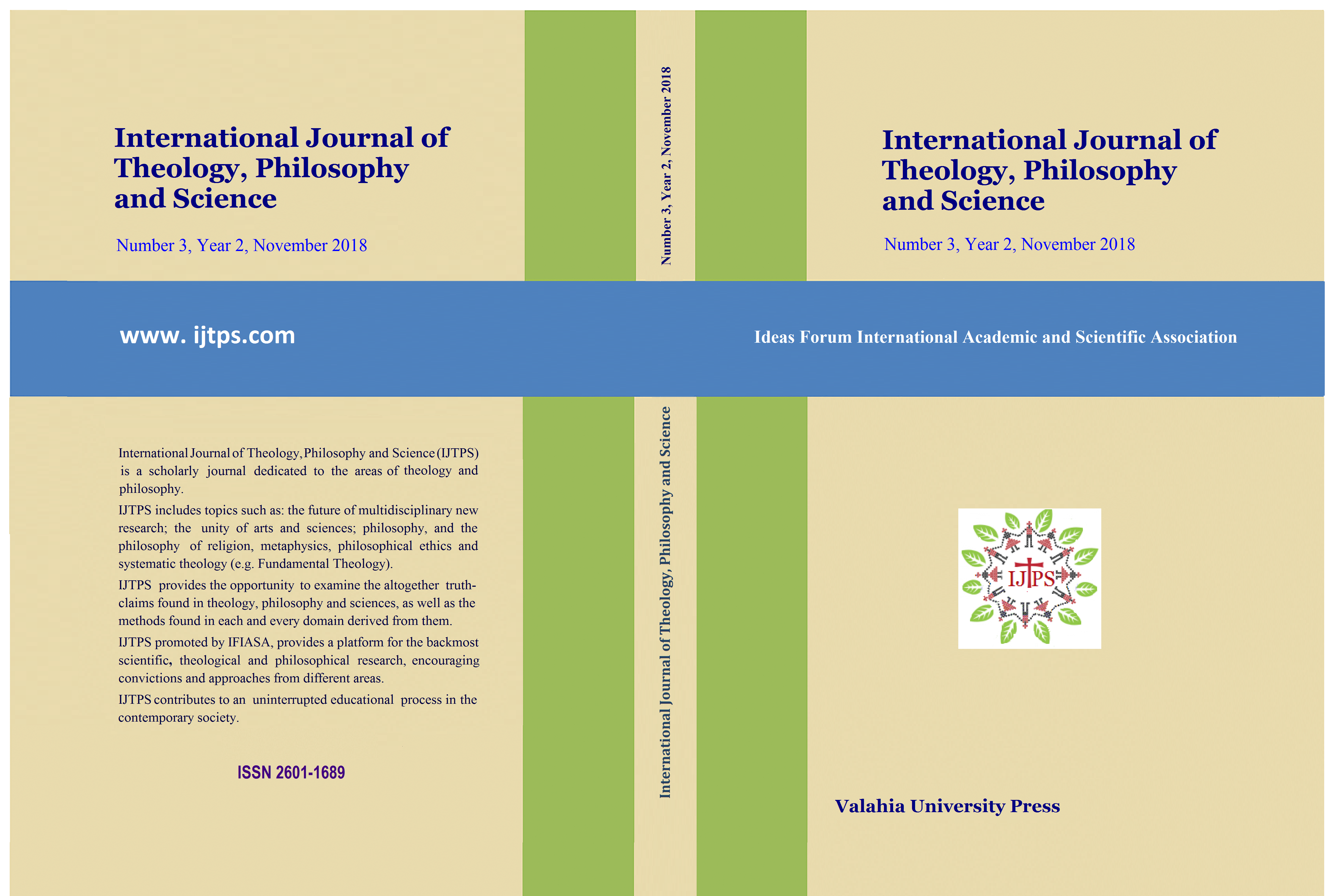
Keywords: Mindfulness Meditation; Attention Deficit Hyperactivity Disorder; Satipaṭṭhāna; Mindful Seon hwadu Sisimma; Korean Ganwha Seon;
Mindfulness meditation (MM), as revealed in the Satipaṭṭhāna, has become auseful alternative treatment modality for Attention Deficit Hyperactivity Disorder(AD/HD). MM is empirically based, attending areligiously to sensations andthoughts. However, its applicability has not reached its full efficacy due to itsbeing transformed and truncated. We describe how the Seon hwadu, Sisimma canenhance its effectiveness, when coupled with Satipaṭṭhāna through the process of“tracing back the radiance.” By accepting the nature of AD/HD as that of aproactive asset, the mindful hwadu, Sisimma, can lessen the symptomatology ofAD/HD, preserving its positives: spontaneity, persistence, and inspiring anexperience of ultimate enlightenment. We discuss how Sisimma can contribute tomindfulness science, and enhance its efficacy as a treatment modality for AD/HD.
More...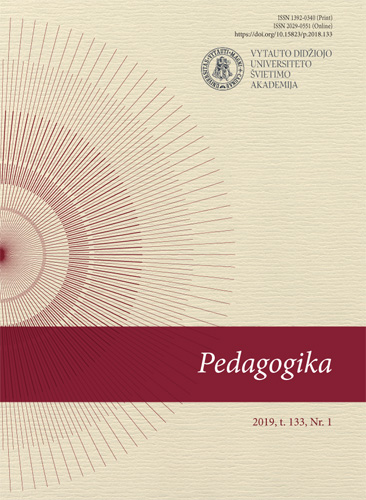
Keywords: principal’s mindfulness; organizational climate; organizational citizenship behavior; effectiveness of schools;
This descriptive and correlational study is aimed at investigating the impact of mindfulness on the effectiveness of schools using mediating variables of organizational climate and organizational citizenship behavior (OCB). Data was gathered from 28 public high schools with 400 teachers. 335 teachers completed the questionnaires completely and returned them. Based on the analysis, it was observed that the established model had acceptable fit indices and accounted for 0.65% of the variance in the effectiveness of schools. The findings also indicated that organizational climate and organizational citizenship behavior had a direct effect on the effectiveness of the schools, and the principal‘s mindfulness had a significant relationship with the organizational climate and organizational citizenship behavior. The direct effect of principal‘s mindfulness was not significant on the effectiveness of schools when two mediating variables were included. However, principal‘s mindfulness (β = 0.63, P <0.01) predicted the effectiveness of schools indirectly through mediating variables. The results of this study showed that the indirect effect of principal‘s mindfulness is remarkable.
More...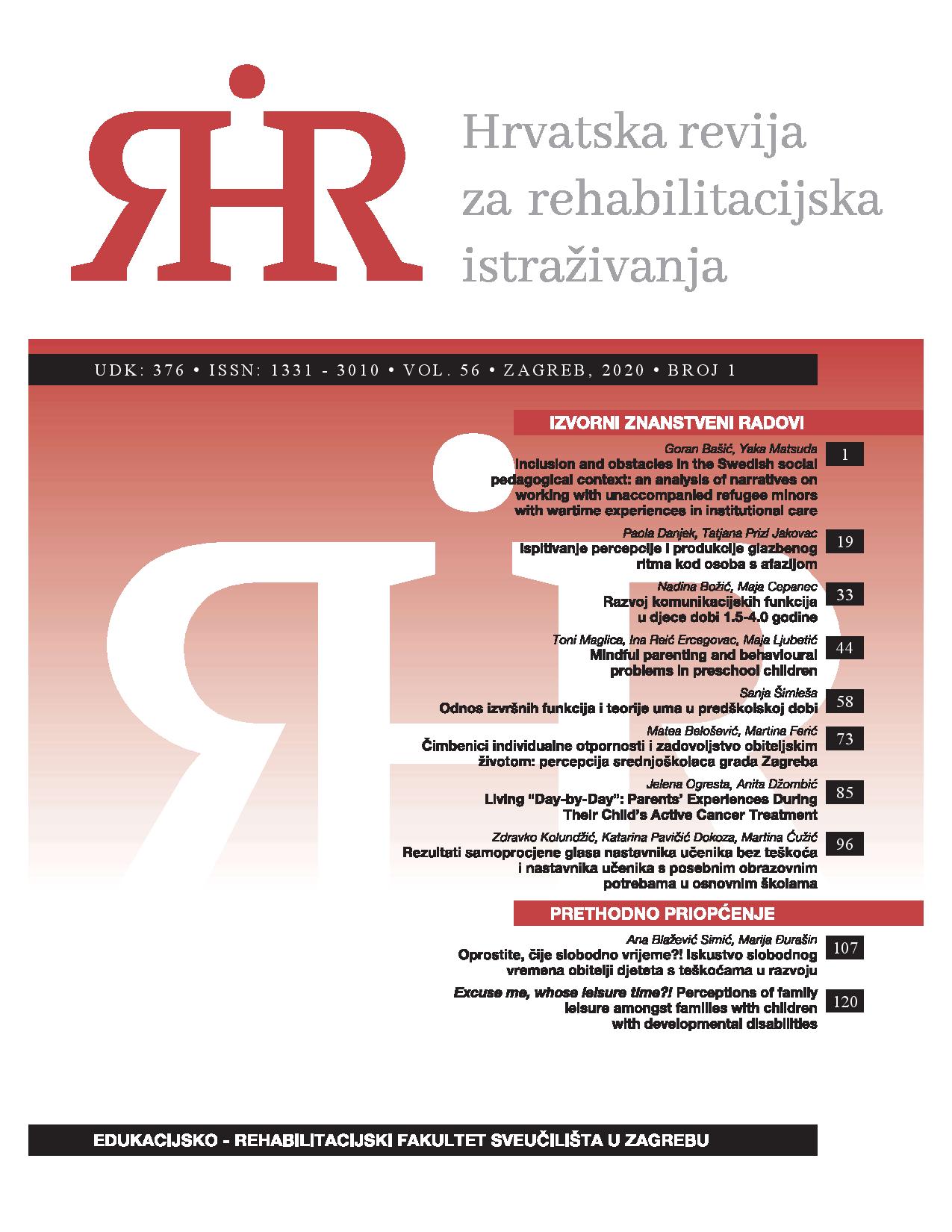
Keywords: internalised and externalised problems; preschool age; mindful parenting;
The aim of this research was to find out if mindful parenting contributes to internalised and externalised problems in preschool children. A total of 168 mothers, fathers and preschool teachers took part in the research, which assesses the extent of internalised and externalised problems in 76 preschool children. Additionally, both parents completed the Mindfulness in Parenting Questionnaire. Results showed that internalised and externalised problems were significantly correlated, with externalised problems being more prominent in boys. Mothers and fathers differed only in one aspect of mindful parenting, empathic understanding for the child, which was higher in mothers. When analysing differences in mindful parenting of boys/girls, the results showed that fathers of boys have higher parental awareness than fathers of girls, while there were no other significant differences. Mindful parenting did not prove significant in predicting internalised problems of preschool children. In contrast, the results showed that 30% of externalised problems in children can be explained by the child’s gender and by mindful parenting from both parents. These findings point to some differences between mothers and fathers contributing to externalised problems. Specifically, the father’s focusing attention on the child with acceptance and the mother’s self-efficacy were related to lower externalising problems, while the father’s empathic understanding of the child and mother’s non-reactivity were related to more externalising problems in children. The results are discussed in the context of existing knowledge about implicit parenting and child development outcomes.
More...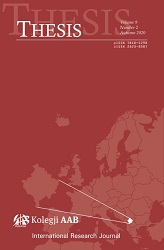
Keywords: Alternative pedagogies; contemplative pedagogy; mindfulness; international education; emotional learning;
While the variation of pedagogies has evolved over time in public school settings, there has also been a significant growth of alternative pedagogies over the mainstream circuit (Bodinet, 2016). One of lesser known pedagogical approaches within those, Contemplative Pedagogy, as well as its applications, have been explored in mostly-independent schools. The question arises: would it gain acceptance in mainstream education? The purpose of this paper is to explore the possible applications of Contemplative Pedagogy in an evidence-based international context, through the analysis of various Mindfulness training techniques and exercises aimed at heightening student awareness and self-knowledge within their larger societal context, and to analyze the impact of this approach within mainstream learning environments.
More...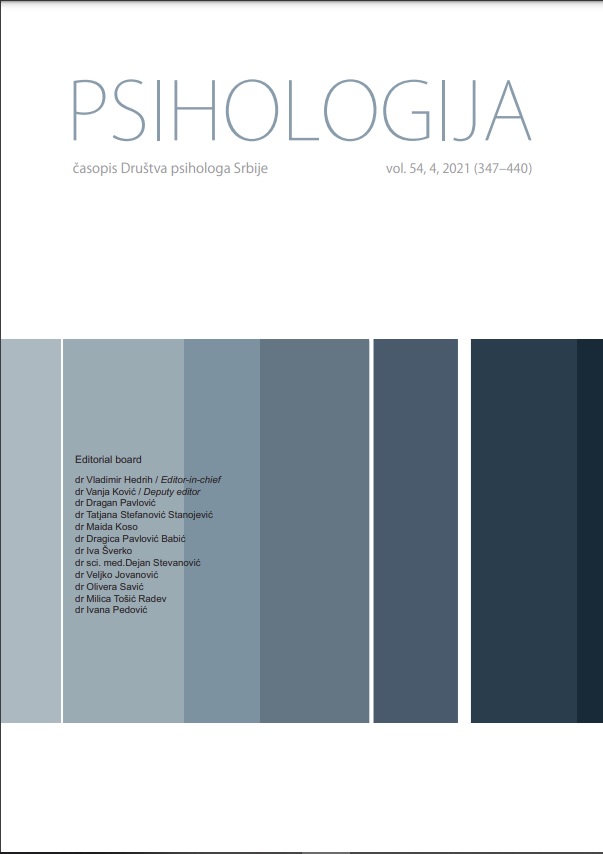
Keywords: COVID-19;emotional competencies;mental well-being;anxiety;inner exercises;body exercises
With stress related to the COVID–19 pandemic, an increase in anxiety and a decrease in overall mental well-being is expected. We investigated the role of emotional competencies (mindfulness and emotional self-efficacy) for psychological responding (mental well-being, general anxiety, and COVID–19 anxiety) during the COVID–19 pandemic. We also examined whether practising mindfulness with inner (meditation-based) and body (yoga-based) exercises supports emotional competencies. Our sample consisted of 364 participants (83.5% females, M = 37.21 years, SD = 12.92 years). Findings showed that emotional competencies are a viable source of support in psychological responses to COVID–19, with Emotional self-efficacy and Accept without judgement playing the strongest roles. Moreover, practising mindfulness was shown to foster several aspects of emotional competencies (i.e., Observe, Describe, and Emotional self-efficacy). There is an ambiguous finding regarding Observe scale that was also found problematic in other studies. The implications for possible interventions are discussed.
More...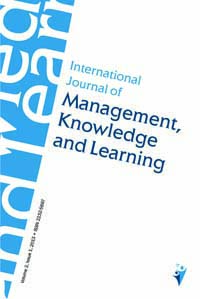
Keywords: Human resources; well-being of employee; mindfulness; practicing mindfulness;
Purpose: This paper aims to evaluate the predictors of well-being in the workplace, psychological capital and mindfulness in particular. Study design/methodology/approach: The research was based on a convenient sample of 65 part-time online students at DOBA Business School. Two standardized questionnaires were administered online to gather the data: The Workplace PERMA Profiler and the Psychological Capital Questionnaire. Additionally, measures of stress perception and mindfulness practice were added to the survey instrument. Findings: The results have shown that psychological capital, hope in particular, significantly predicts employee well-being, while the frequency of practising mindfulness does not improve the predictive power of the linear regression model. Originality/value: The paper discusses the available measures and interventions and provides concrete guidelines for managers to enhance employee well-being in the workplace.
More...
Keywords: Employee Engagement; Organizational Compassion; Virtual work; Work remotely; Well-being;
Purpose: This study attempted to study the dynamics between organisational compassion and employee engagement during the COVID-19 lockdowns in Uganda and Rwanda when workers were required to work from home and in Virtual work environments. Methodology/approach: The study adopted a quantitative research design. Data was collected from a sample of staff in selected institutions of higher learning in Uganda and Rwanda using an online questionnaire distributed both through social media and email correspondence. Findings: The findings indicated that organisational compassion was a significant predictor of the vigour component of employee engagement compared to dedication and absorption while working virtually. Moreover, for selected organisational compassion dimensions of mindfulness and kindness, the supervisor's kindness towards employees and employees’ mindfulness of self to others were strong predictors of work engagement while working remotely. Originality/value: While organisational compassion and employee engagement have been studied in in-person settings, this paper attempted to explore these concepts in virtual and remote workspaces with unique complexities.
More...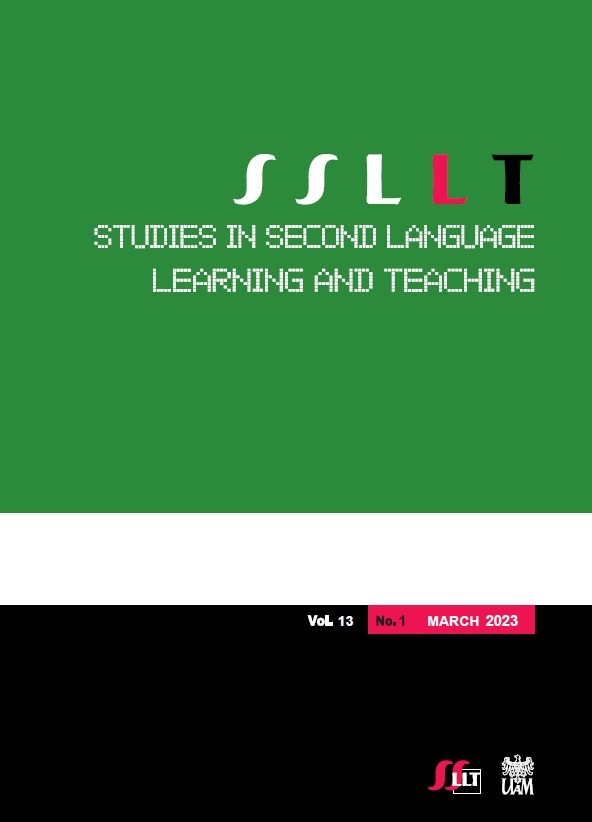
Keywords: foreign language teaching enjoyment (FLTE); mindfulness; engagement; burnout; EFL teachers
Research on learners’ foreign language emotions has revealed the existence of a positive feedback loop where increased enjoyment leads to better performance which, in turn, strengthens learners’ enjoyment and boosts overall happiness. The current study follows this avenue focusing on teachers’ foreign language teaching enjoyment (FLTE) and its relationships with engagement, mindfulness, and burnout. The participants, who were 496 English as a foreign language (EFL) teachers from Iran, completed four electronic surveys. The proposed mediation model based on data collected from EFL teachers indicated that FLTE partially mediated the relationship between mindfulness and engagement as well as their burnout. The results revealed that mindful EFL teachers who enjoy the profession are more likely to experience higher levels of work engagement and job satisfaction, thus creating a positive feedback loop. In addition, the findings suggest the importance of positive emotions in EFL teachers’ psychological flourishing based on the tenets of positive psychology. Finally, implications and suggestions for further research are offered.
More...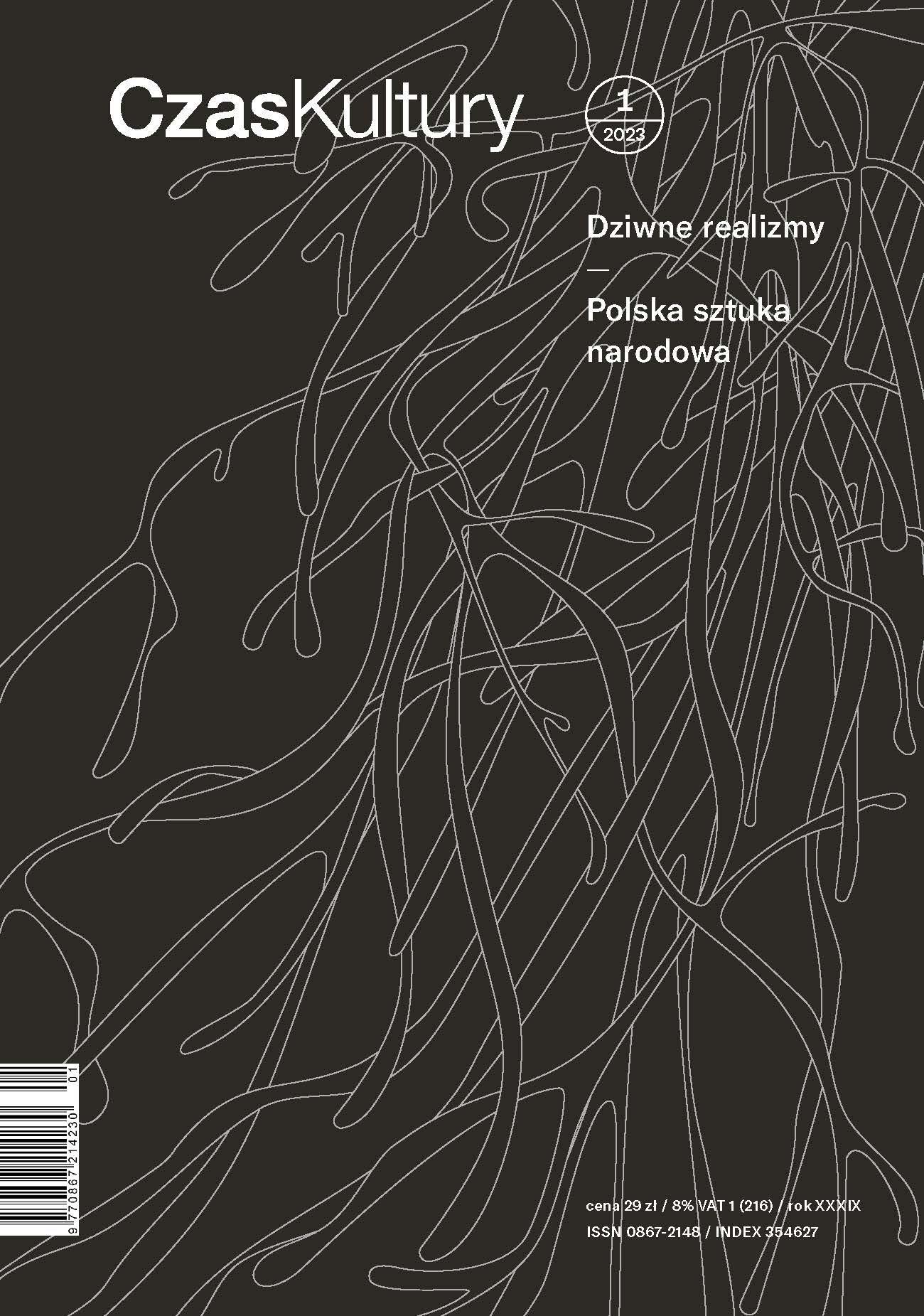
Keywords: herbal practice;postsecularism;mindfulness;relationality;knowledge and care
herbal practice, postsecularism, mindfulness, relationality, knowledge and care
More...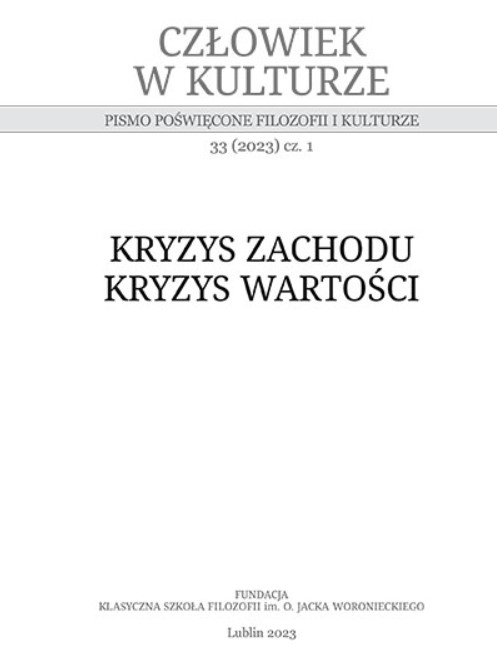
Keywords: mindfulness; film; biographical series; artist; mechanisms of persuasion;
The subject of the essay is a reflection on the mediatization of film art in the context of film studies and to indicate the importance of the category of “mindfulness” in the study of the phenomenon of movie streaming platforms. Knowledge on this subject allows: on the one hand (director's perspective) to consciously create a creative process with the viewers’ interest in mind (new concepts of influencing the audience), and on the other (the point of view of the recipients of the film message)—to understand the difference in the perception of individual films, series presented on television and watched via streaming platforms. The aim is to answer the question: How does “mediatization” affect film art? For example, it may be the expansion of distribution channels; impact on the so-called “attendance potential”; the increase and acceleration of the international circulation of the content conveyed by the art of moving images; and even changing the canon history of cinema (“rewriting history”, rewriting). Not all threads are analyzed as the focus is to indicate the strategies of exerting influence (including tactics: involvement, arousing interest by creating an aura of uniqueness or reciprocity and interchangeability of perspectives) used by the creators of biographical films-series. Each time these considerations are based on the conviction about the importance of “mindfulness” and the direction of work on creating and controlling the interest of potential recipients.
More...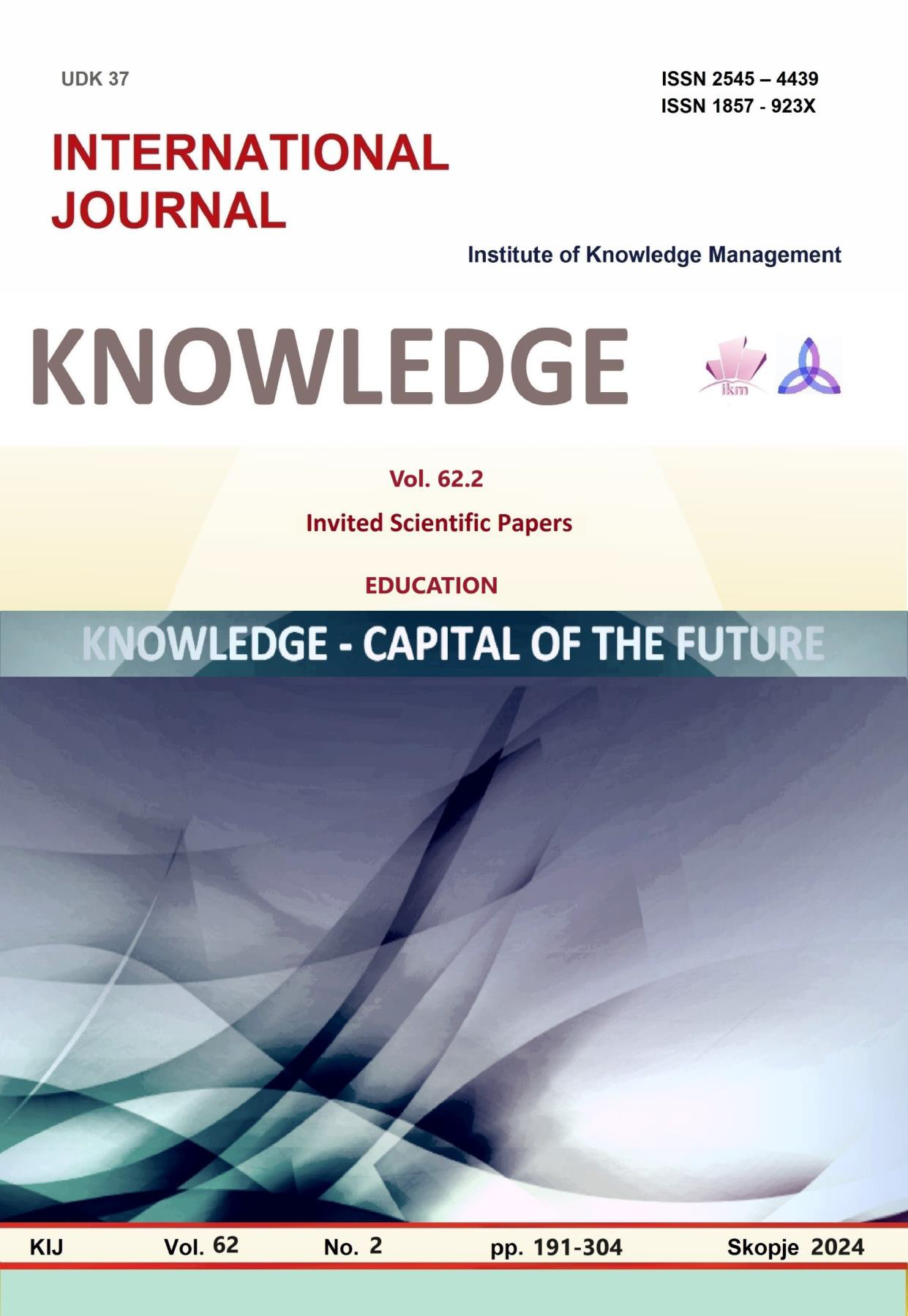
Keywords: mindfulness;learning;attention;Self-efficacy;flow;creativity
There are too many stimuli in the modern world we live in. Every day and everywhere around us events happen. Some of them we notice and appreciate, and some- we do not. Being mindful of what we experience and what is important to us could become a way of making sense of and analyzing information. Mindfulness is a skill that can be trained, honed and applied in every area of our lives. Learning is a conscious process unique to human beings that includes multiple patterns of information acquisition, intelligence features, and cognitive styles. Knowledge and purposeful application of this information could be presented as an essential component of learning and thinking processes. The article explores the topic of mindfulness as a key component of effective learning. Ellen Langer's idea that conscious learning is much more than information processing is presented. It represents an attempt to consider at least several points of view in a given situation, as well as an aspiration to research and search for novelties. The main benefits of applying mindfulness skills in the learning process are described, as well as some correlations with important psychological constructs such as self-efficacy, experiencing a state of flow, and creativity. The theme is also traced in the context of the Theory of Mind. Self-efficacy is a concept introduced into psychology by Albert Bandura. He describes the confidence a person feels about facing the challenges in his life. It can also be represented as a belief that one can and does exercise some control over life's events. The assumption that high levels of conscientiousness positively correlate with high levels of self-efficacy could be made. The reference to the Theory of Mind is essential. Understanding the mental experiences of others is an essential component of developing consciousness and emotional intelligence. The beliefs and desires of others as different from one's own is central to interpersonal relationships. In this material the main points of contact between the mentioned constructs are presented. Creativity as a key component to achieving success in school (and beyond) can be stimulated by giving challenging tasks that cannot necessarily be quantified. This also contributes to the experience of satisfaction and flow. A quality life is full with conscious experiences, commitment and meaning in every activity. In this way, everyday life is filled not just with tasks but with situations in which a person can project and develop his acquired skills.The existing educational practices in addition to methodological ones could also be improved and developed by stimulating the psychological mechanisms underlying the assimilation of socio-historical experience. The outlined theoretical framework is an attempt to describe and analyze the essential characteristics of the studied concepts, but also to mark the main research fields
More...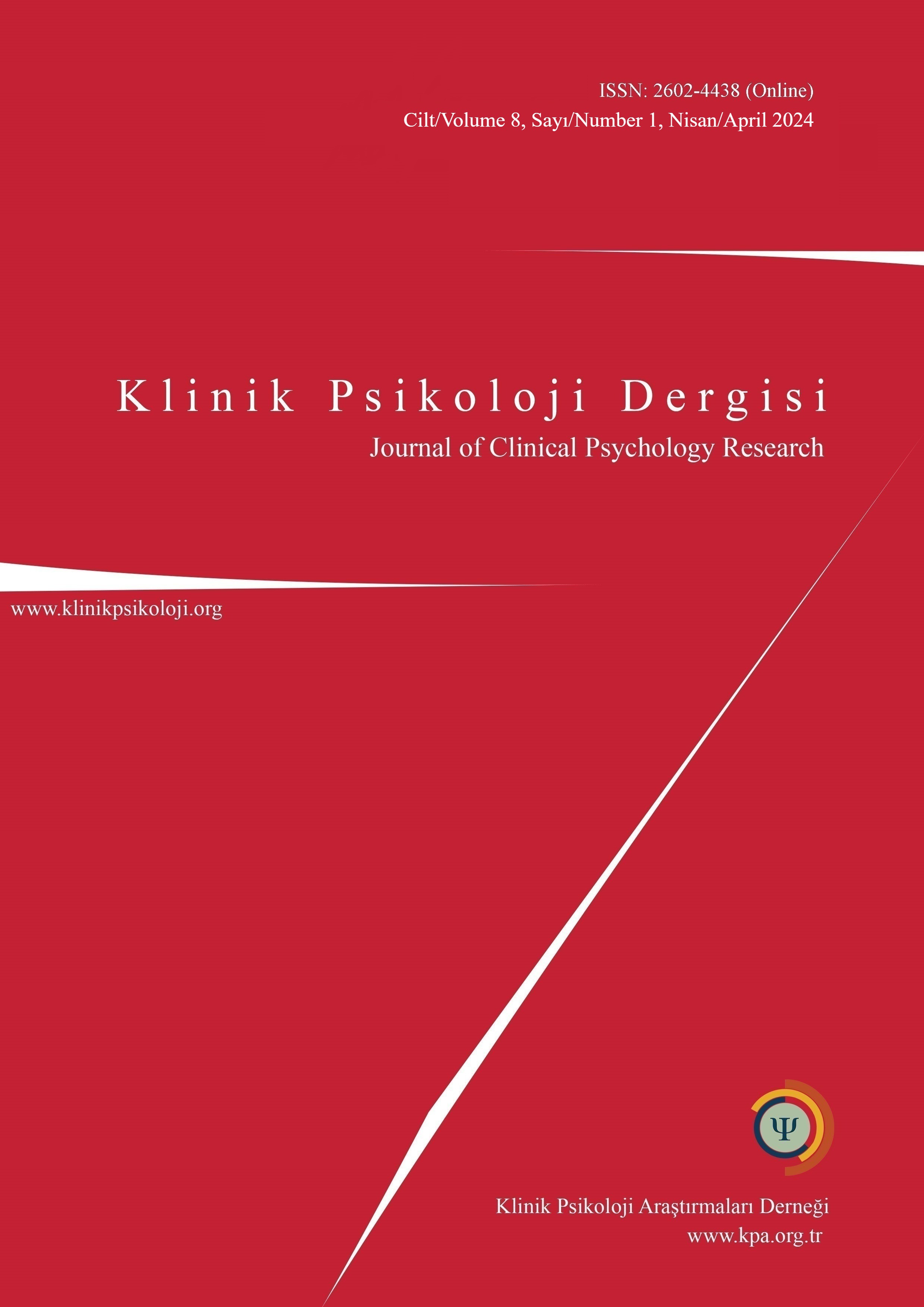
Keywords: COVID-19; generalized anxiety disorder; mindfulness; cognitive control; cognitive flexibility
The outbreak of COVID-19 presents a threat to human psychology and shows an increase in anxiety. With the uncertainty during the pandemic, individuals are concerned about different areas in their life such as health or economy. Thus, an increase in Generalized Anxiety Disorder (GAD) symptoms is expected. The present study aimed to investigate the association between COVID-19 concerns and GAD-symptoms, and the mediating roles of Mindfulness, Cognitive Control (CC), and Cognitive Flexibility (CF) in this relationship. 458 individuals aged between 18-75 (78.4% female, 21.6% male) participated in the present study. Data was collected online using self-reported questionnaires measuring concerns related to COVID-19, GAD-symptoms, Mind-fulness, CC, and CF. The results of the present study showed that GAD-symptoms were signifi-cantly predicted by coronavirus concerns. The more worries about the pandemic outcome, the higher GAD-symptoms were reported. Moreover, this association was mediated by Mindfulness and CC. Mindful individuals and those with higher CC showed fewer GAD-symptoms. Even though CF has been found as decreasing anxiety symptoms, it did not affect coronavirus con-cerns. Regarding GAD, individuals’ worries are not unrealistic, but mostly not linked to real threat. During the pandemic on the other hand, worries are related to real danger. Thus, beliefs about the pandemic might not be maladaptive. Instead of changing these beliefs, having the ability to direct attention purposefully through CC might be more functional. Furthermore, accepting their experiences in a non-judgmental way might be adaptive. These results highlight that individuals with GAD-symptoms might benefit from interventions based on Mindfulness and CC during the pandemic.
More...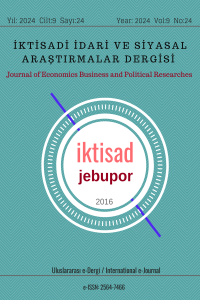
Keywords: Mindfulness; career adapt-abilities; employees;
The aim of this study is to examine the relationship between employees' levels of mindfulness and their career adapt-abilities. For the field research, working population in Central Anatolia Region of Turkey was determined as the universe, and data were collected by reaching 401 individuals through convenience sampling method from cities Ankara, Kırıkkale and Çorum. According to the research findings, a positive effect is identified between mindfulness and career adapt-abilities and its sub-dimensions except for the concern. It is also observed that women exhibited higher levels of mindfulness, individuals in managerial roles exhibited higher levels of mindfulness and curiosity, concern levels tended to decrease with increasing age, control and curiosity levels increased directly proportional to income. Mindfulness and career adapt-abilities are important concepts for both individuals and organizations. Furthermore, individuals with a high level of mindfulness and developing career adapt-abilities will not only align with their careers but also contribute to economic and societal development on a macro level.
More...Keywords: individuality; identity; mindfulness; reflexivity
The paper attempts to answer the question: how could human individuality be a resource making it possible to cope with the experience of feeling uncertainty and risk? Jan Szczepański’s idea of individuality defines the structure and functions of that dimension of the human condition. It tries to explain the sense of man’s inner world and their reflexivity in struggling with the negative consequences due to the social organisation of collective life. An analytic view of individuality included in this concept allows for revealing the emergency nature of personal identity affected by dialogue between the inner world and the internalised outside world. The discussed concept might increase the attempt to synthesise it with the vision of mindfulness. The effect of it is a unique underlining role of loneliness in the individual process of human development and captures the moral character of individuality (hipo-egoic phenomena).
More...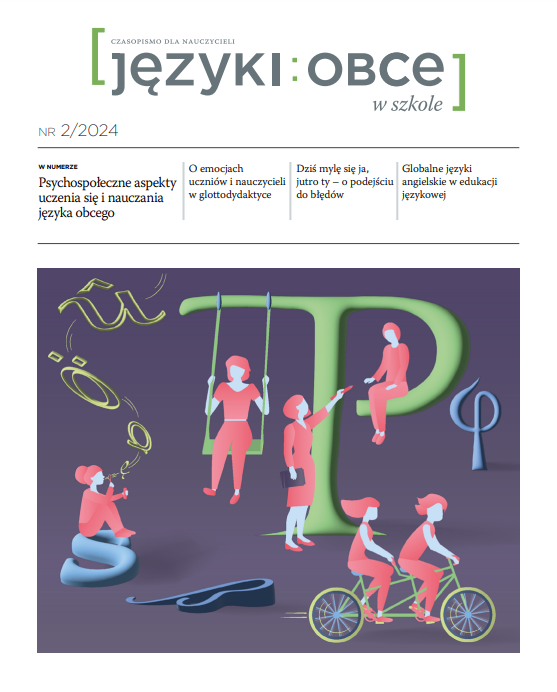
Keywords: mindfulness; emotions; positive psychology; communication; team building
We often wonder what to do to make students more lively and ready to act during lessons. We invent new games and activities to arouse their interest. However, we often forget about the emotions that accompany us and students, which undoubtedly have a strong impact on behavior and the acquisition of knowledge. I would like to present a few ideas that will help build relationships with the group, facilitate communication, and help control emotions, thus increasing the effectiveness of classes. This article focuses on exercises that support emotional regulation, relaxation and meditation, such as brain breaks, mindfulness, team building activities and talking about emotions.
More...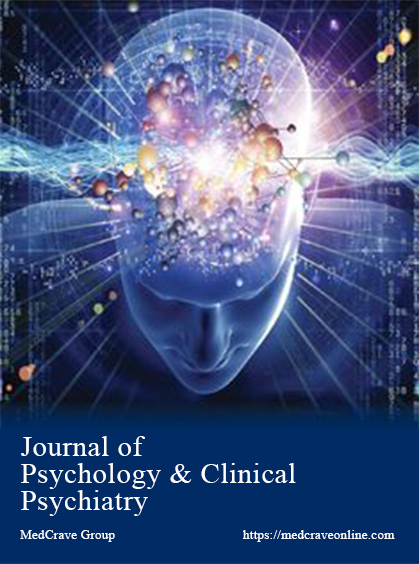
Keywords: mindfulness; motivation for parenthood; distress; coping; in vitro fertilization;
Background: The experience of infertility and assisted reproductive technology (ART) are emotionally distressing for both partners, but particularly for women. Aims: The current study explored the relationship between self-compassion, motivation for parenthood, relationship attachment and psychological distress in women undergoing in vitro fertilisation (IVF). Method: A sample of 363 women undergoing IVF responded to a questionnaire based survey. Results: Negative mental health effects seem to be buffered by self-compassion, secure attachment, social support, problem focused and emotion focused coping. Conclusion: Women who are less likely to blame themselves for failure and are more forgiving of perceived shortcomings, who are more secure in their relationship, who feel supported and are able to use both problem-focused and emotion-focused coping strategies have better mental health. The findings point to potential psychological interventions in terms of stress management, couple counselling, and mindfulness therapy in reducing the psychological distress of IVF.
More...